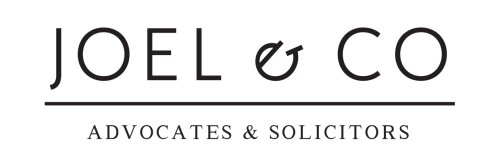Best Tax Increment Financing Lawyers in Petaling Jaya
Share your needs with us, get contacted by law firms.
Free. Takes 2 min.
List of the best lawyers in Petaling Jaya, Malaysia
About Tax Increment Financing Law in Petaling Jaya, Malaysia
Tax Increment Financing (TIF) is a public financial tool predominantly used by municipalities to encourage urban development and economic growth in certain areas. In Petaling Jaya, Malaysia, the concept is aimed at stimulating redevelopment and community improvement through investment facilitated by increased property taxes resulting from a rise in property values. TIF districts finance infrastructure, revitalization projects, and other public amenities, leading to spur growth in underdeveloped regions. The TIF approach in Petaling Jaya encompasses regulatory frameworks aligned with Malaysia's urban planning and economic strategies.
Why You May Need a Lawyer
Engaging a lawyer may be crucial in navigating the complexities of TIF in Petaling Jaya due to several reasons:
- Complex Legal Processes: Establishing a TIF district involves various stakeholders, legal procedures, and compliance with local and national regulations.
- Contract Negotiations: Legal expertise may be necessary in drafting, reviewing, and negotiating contracts with developers, local authorities, and investment bodies.
- Dispute Resolution: Lawyers can provide assistance in resolving disputes related to project execution, financial arrangements, and compliance with statutory requirements.
- Compliance and Risk Assessment: Ensuring compliance with urban planning laws and assessing associated risks is essential to avoid potential legal issues.
Local Laws Overview
Key aspects of local laws relevant to Tax Increment Financing in Petaling Jaya encompass:
- Urban Planning Regulations: Adhering to the regulations stipulated by the Town and Country Planning Act 1976, which governs land use and development control.
- Local Government Act 1976: Provides provisions for local councils to implement development projects, which may include the establishment of TIF districts.
- Public Procurement Policies: Ensures that the contracting processes comply with the standards set for governmental transparency and fairness.
- Environmental Regulations: Compliance with environmental assessments and sustainability standards is crucial for projects within TIF districts.
Frequently Asked Questions
1. What is TIF used for in Petaling Jaya?
Tax Increment Financing is used to fund redevelopment projects, improve infrastructure, and stimulate economic growth in certain underdeveloped areas.
2. How is a TIF district formed?
A TIF district is established through a proposal, review, and approval process involving local government authorities, focusing on areas requiring economic revitalization.
3. Who benefits from TIF?
The primary beneficiaries are local communities and businesses, who gain from improved infrastructure and economic opportunities.
4. Can residential areas be included in TIF districts?
Yes, residential areas can be part of TIF districts if they meet the criteria for redevelopment and economic improvement.
5. How long does a TIF district last?
The duration of a TIF district varies but generally aligns with the timeframe required to complete the intended projects and repay the incurred expenses.
6. How are funds generated in a TIF district?
Funds are generated through the increase in property taxes from the rise in property values within the TIF district.
7. What types of projects can be funded by TIF?
TIF can fund public infrastructure improvements, commercial developments, affordable housing projects, and community facilities.
8. Are there any risks involved in TIF?
Yes, risks may include potential shortfalls in expected tax increments, legal disputes, or projects failing to stimulate expected economic growth.
9. How can a business participate in TIF opportunities?
Businesses can participate by engaging with local councils, understanding TIF plans, and investing in development opportunities within designated TIF districts.
10. Is public input considered in the TIF process?
Yes, public input is typically considered through community meetings and consultations as part of the proposal and approval process.
Additional Resources
For those seeking more information, resources include:
- Petaling Jaya City Council (MBPJ): Provides information and guidance on urban development and TIF initiatives in the city.
- Ministry of Federal Territories: Offers insights into national urban policies affecting TIF projects.
- Malaysian Institute of Planners: A professional body that can provide educational resources and workshops.
Next Steps
If you require legal assistance in Tax Increment Financing, consider the following steps:
- Research and Identify: Begin by identifying experienced legal professionals specializing in urban development and TIF.
- Consultation: Arrange for an initial consultation to discuss your specific needs, potential projects, and legal requirements.
- Review and Plan: Work with your lawyer to review development proposals, financial implications, and compliance requirements.
- Monitor Progress: Keep abreast of legal advice and regularly consult with your lawyer to ensure the smooth progression of TIF projects.
Lawzana helps you find the best lawyers and law firms in Petaling Jaya through a curated and pre-screened list of qualified legal professionals. Our platform offers rankings and detailed profiles of attorneys and law firms, allowing you to compare based on practice areas, including Tax Increment Financing, experience, and client feedback.
Each profile includes a description of the firm's areas of practice, client reviews, team members and partners, year of establishment, spoken languages, office locations, contact information, social media presence, and any published articles or resources. Most firms on our platform speak English and are experienced in both local and international legal matters.
Get a quote from top-rated law firms in Petaling Jaya, Malaysia — quickly, securely, and without unnecessary hassle.
Disclaimer:
The information provided on this page is for general informational purposes only and does not constitute legal advice. While we strive to ensure the accuracy and relevance of the content, legal information may change over time, and interpretations of the law can vary. You should always consult with a qualified legal professional for advice specific to your situation.
We disclaim all liability for actions taken or not taken based on the content of this page. If you believe any information is incorrect or outdated, please contact us, and we will review and update it where appropriate.

















